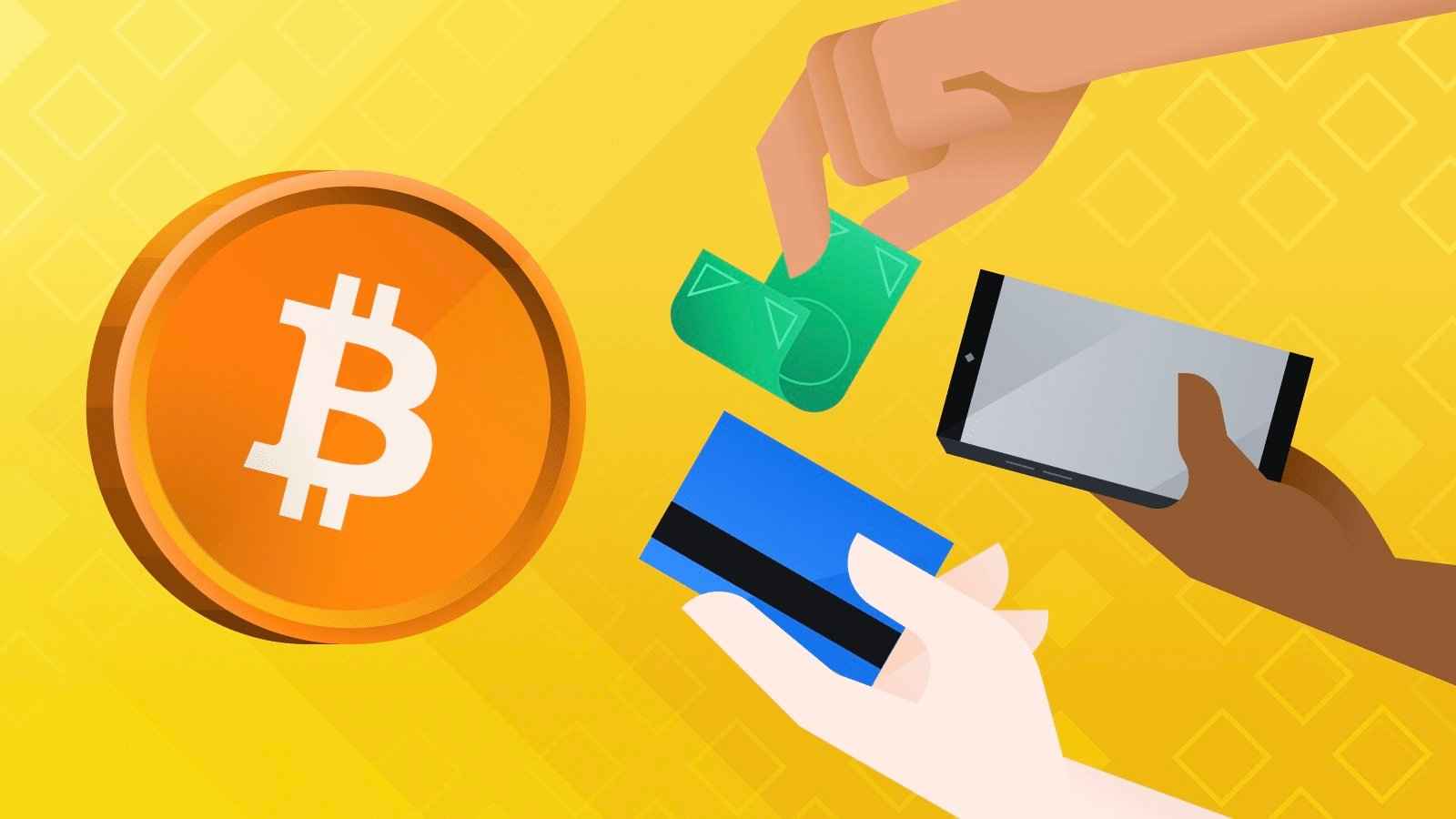Diving into cryptocurrency can feel like exploring uncharted waters. It’s exciting but can quickly get overwhelming. You probably have tons of questions, and figuring out what to know before investing in crypto for beginners is crucial. That’s why I’m here, to guide you through this digital currency jungle. With this blog, you’ll grasp the blockchain basics, tell Bitcoin apart from altcoins, and learn the difference between a token’s price and its value. We’ll also talk about the risks and the tools you’ll need to navigate them. I’ve got you covered on keeping your digital cash safe, too. Ready to learn more? Let’s make sure your crypto journey starts off right!
Understanding the Cryptocurrency Landscape
Grasping Blockchain Technology Fundamentals
Before diving into crypto, get how blockchain works. It’s the backbone of it all. Blockchain is like a digital notebook. It holds all crypto transactions and copies are all over the net for safety. You can’t change old pages; you can only add new ones. This keeps records safe and trustful, not needing a middle person like a bank.
When you send crypto, it’s a new page in this notebook. Computers check it, then lock it in forever. This tech isn’t just for money; it can hold contracts and share files too.
Differentiating Between Bitcoin and Altcoins
Now, let’s chat about Bitcoin versus other coins. Bitcoin was the first and is still on top. It’s digital gold; valuable and trusted. Other coins, called altcoins, each have their own spin. There’s a sea of altcoins, some with real promise and others not so much.
Bitcoin shines with fame and trust, but it’s slower than some altcoins. These new coins try to fix Bitcoin’s limits, like speed and fancy uses. Ethereum, a popular altcoin, lets people make smart contracts. These auto-execute deals when terms are met.
Altcoins can give quick gains, but beware, they often have big price swings. Be ready and do your homework before buying these new kids on the block.
With these insights, you’re set to start your crypto ride. Remember, take it step by step and always play it safe!
Preparing for Cryptocurrency Investments
Assessing Digital Currency Risks
Before you put money into crypto, you must know the risks. Crypto can be wild—a roller coaster of ups and downs. Prices change fast. They can soar to the sky or crash to the ground. Your money can grow or shrink. There’s no promise it will go one way or the other.
Hackers are another big risk. They’re always after crypto. It’s vital to keep your crypto safe. Use strong passwords and put your crypto in a secure spot. There are ways to keep it offline, away from hackers.
You might hear about getting rich quick with crypto. But that’s rare, and many face losses. Only put in what you can afford to lose. This way, if the market dips, you’re still okay.
Exploring Crypto Market Analysis Tools
Understanding the market helps you make smarter choices. Charts and graphs can show trends and patterns. These can signal when to buy or sell. But remember, past results don’t predict the future. It’s like weather forecasting. They give you an idea, but they’re not always right.
You’ll hear a lot about Bitcoin and altcoins. Bitcoin is the first and biggest. Altcoins are all the others. Each has its own twist. Some are faster, some are more private. They each have different value and risks.
Starting with Bitcoin or Ethereum is a common choice. They’re like big names in the stock world. They’ve been around longer and are more established. But there’s no sure thing. Even they can fall in price.
Diving into markets needs your time to learn and watch. Tools online can track prices and news. You might see terms like ICO, or Initial Coin Offering. It’s like a crypto kick-off sale. Be careful! Some ICOs are great, others not so much. Doing your homework is key.
The crypto world is full of jargon—like tokenomics and blockchain. Tokenomics is how a crypto works, like what makes it valuable. Blockchain is the tech behind crypto. It’s a digital ledger that’s hard to cheat. A simple way to think of blockchain is like a chain of digital blocks. Each block is a bunch of transactions, all linked together.
Laws around crypto keep changing. It’s good to know what’s up with rules and taxes. In some places, you’ll pay taxes on crypto gains. Always check the law where you live before you jump in.
Lastly, scams are out there. Some promise huge returns, but they just take your money. Go with well-known exchanges and wallets. Check reviews and do your homework. If it seems too good to be true, it probably is.
So, gear up with knowledge first. Understand how everything works. Know the risks, and use smart tools. This way, you’re set to make better moves in the crypto world.
Encryption and Security in Crypto Trading
The Importance of Private and Public Keys
When you start in crypto, knowing about keys is key. Think of a mailbox. You can have a slot to drop mail in. Yet you need a key to get mail out. That is like public and private keys. Your public key is like your mailbox slot. Anyone can see it, and they can send you crypto. But your private key is only for you. Like a mailbox key, it opens your crypto box. Keep it secret. If someone takes it, they can steal your crypto.
Understanding keys is part of understanding cryptocurrency. Every trade you make uses keys. So, never share your private key. Not with friends, not online, nowhere. Treat it like a big secret. This keeps your crypto safe from others who might take it.
Choosing Safe Crypto Storage Solutions
What about keeping your crypto? There’s no real coin, right? So, you need a crypto wallet. There are two main kinds: hot and cold. A hot wallet connects to the internet. It makes quick trades easy. But, it has a risk. Hackers might get in.
On the other side, a cold wallet is offline. It’s like having a safe in your home. It’s safer, but trades are slower. A paper wallet is simple. It’s your keys on paper. Store it well, like a valuable paper. A hardware wallet is a small device. It holds keys, like a safe USB stick. It’s harder to attack because it’s not online.
When looking for safe crypto storage solutions, ask a few questions. How fast do you plan to trade? Is it more for long-term holding? How much are you putting in? With more money, you should think more about safety. Some people use both wallets. This spreads the risk. Check for good wallet brands and use them. It’s an important step in crypto investment basics for beginners.
In crypto trading, you want to keep others out. Do this right, and it’s like your own fort. You need good walls (safety practices) and a good vault (storage solution). If you’ve heard of blockchain technology primer, it’s part of these walls. It keeps a track of each crypto move. This helps to stop fake trades. Also, due diligence in crypto investing means checking everything. Look at the security of your wallet. Look at the crypto you buy. Are there past hacks? What do people say online?
Lastly, the crypto world moves fast. It’s an adventure. Keep learning as you go. New things pop up often. It’s vital to keep up with changes in tech and rules. This will help you trade smarter and safer. Remember, each step you take matters. Take care of your keys. Choose the right wallet. Keep learning. And always think before you trade.
Strategic Investment and Trading Principles
Decoding Tokenomics and Its Implications
When diving into crypto, you must get tokenomics. It’s a mix of “token” and “economics.” Tokenomics studies how cryptocurrencies work within the broader ecosystem. It includes factors like supply, how it’s used, and the rules of the game.
Imagine tokenomics as a game blueprint. This blueprint shows who gets new coins and how they spread. For beginners, this is key. A coin with good tokenomics may grow in value. Poor tokenomics can mean risk.
For instance, Bitcoin has a cap. Only 21 million coins will exist. This limit can make it more valuable as it gets scarce. Every coin has its own rules, though. Learn these rules before buying. Ask, “How will more coins come into being? Will my coins go down in value?”
Developing a Long-Term Investment Mindset
Think long-term with crypto. Short wins can thrill, but ups and downs happen fast here. A long view helps you weather the storms. Long-term thinking involves doing homework on trends and tech. It means watching the market but not reacting to every dip.
Focus on strong projects with potential. Look at how they solve real problems. Hold onto these for years, not just weeks or months. Even with Bitcoin and altcoins, play the long game. Remember, this is not a quick cash grab. It’s about smart, steady growth over time.
Seasoned investors say, “Don’t put all eggs in one basket.” This means diversify. Split your investment into different types, not just one. This cuts your risk if one fails. And yes, even with careful planning, some investments will fail. But with many types, you may win overall.
Before you start, research is your friend. Learn about blockchain technology primer. Know the digital currency risks. Understand the basics like cryptocurrency exchange guide. Then move to deeper topics like crypto trading strategies for novices.
And very important – keep your crypto safe. Learn about private and public keys explained. Choose between paper wallet versus hardware wallet. And always follow strong security practices for crypto assets.
In summary, to start in crypto:
- Learn tokenomics of each coin.
- Think long-term, not just quick gains.
- Diversify your portfolio.
- Research a lot, from basics to in-depth facts.
- Keep your crypto secure.
Start with what you understand. Go slow, invest small amounts. As you learn, you can add more. Remember, there’s no rush. Your journey into crypto should be careful, thoughtful, and informed.
In this post, we walked through the cryptocurrency world, from understanding blockchain basics to differentiating between Bitcoin and other coins. We looked at what to consider before investing and what tools can help. Next, we covered how to keep your crypto safe with keys and storage. Lastly, we explored tokenomics and the value of long-term investing.
I believe that with the right knowledge and tools, anyone can make smart choices in crypto. Always remember, the key is to learn and stay secure. I trust this guide sheds light on your crypto journey, whether you’re starting out or leveling up. Stay curious and cautious, friends!
Q&A :
What should beginners know before investing in cryptocurrencies?
Before diving into cryptocurrency investment, beginners should familiarize themselves with the basic concepts of blockchain and how digital currencies operate. Understanding market volatility, the risks involved, secure storage options like wallets, and the different types of cryptocurrencies is also crucial. It’s also important to start with small investments, do thorough research on each currency before buying, and stay updated on market trends and news.
How much should a beginner invest in crypto initially?
For beginners, it’s advisable to only invest what they can afford to lose due to the high volatility of the market. Starting small not only minimizes risk but also allows for the learning process to occur with less financial pressure. Many experts recommend using a conservative approach, such as dedicating a small percentage of the investment portfolio to cryptocurrencies.
What are the best ways to research cryptocurrencies before investing?
Research should include reading white papers, assessing market trends, understanding the technology behind cryptocurrencies, and scrutinizing the team and community support for the project. Additionally, beginners can follow established influencers and analysts in the cryptocurrency space, participate in community discussions, and utilize tools that track market data and sentiment.
Are cryptocurrencies a safe investment for beginners?
Cryptocurrencies are considered high-risk investments due to their volatility and relative novelty. While there is potential for high returns, there is also a possibility of significant losses. Beginners should approach cryptocurrency investments with caution, thoroughly research their choices, diversify their investment portfolio to manage risk, and consider seeking advice from financial advisors.
What common mistakes should beginners avoid when investing in cryptocurrencies?
Beginners in crypto investing often make mistakes such as investing based on hype rather than solid research, failing to secure their investments properly, not diversifying their crypto holdings, and making decisions based on emotions rather than strategic planning. They may also overlook the importance of understanding the tax implications of their investments. To avoid these pitfalls, it’s crucial for beginners to educate themselves extensively and approach investing in a disciplined, well-informed manner.



